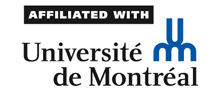What is the story?
These last 25 years, 20 referendums have been organized on whether the current set of voting rules should be replaced or not. Some of these referendums took place in long-standing and democracies such as the United Kingdom in 2011.
In a recent paper accepted for publication in Public Choice, we use an original online voting experiment to examine which system citizens prefer. We also study the factors that influence this preference.
The online voting experiment
A few weeks before the first round of the 2012 French Presidential election, we released an interactive website: www.voteaupluriel.org. The website was open to all, but we used French national media to advertise it. In total, more than 5,000 eligible French citizens participated in our experiment and fully completed the protocol.
During our online experiment, we invited participants to report how they intended to vote for the upcoming election using the actual two-round majority system. Then we asked them how they would vote under three alternative voting rules:
- One-round plurality: the candidate with the most votes is elected
- Alternative voting: voters rank order the candidates and the candidates with a majority of first preferences wins (the weakest candidates are subsequently eliminated and their vote reported to the other candidates until one obtains a majority of first preferences)
- Approval voting: voters indicate all the candidates that they approve and the candidate with the most votes (approvals) wins
Results
At the end of our experiment we asked participants which set of voting rules they prefer. The results indicate that they prefer alternative voting (41%), to approval voting (27%), two-round majority (24%), and one-round plurality (8%). See the table below.
We find that citizens tend to prefer the system that is most favourable to their most preferred candidate. Participants whose preferred candidate was among the top two contenders of two-round majority system (Hollande and Sarkozy) had 20% more chances of preferring this electoral system. See the table below.
We also find that (1) participants dislike voting rules if they vote strategically, i.e. desert their most preferred candidate as this candidate has no chance of winning, and (2) left-wing citizens prefer systems under which they can vote for several candidates (alternative and approval voting) while right-wing citizens prefer one-round plurality and two-round majority.
For more details see, André Blais, Jean-François Laslier, François Poinas, and Karine Van der Straeten. Forthcoming. Citizens’ preferences about voting rules: self-interest, ideology, and sincerity. Public Choice.
